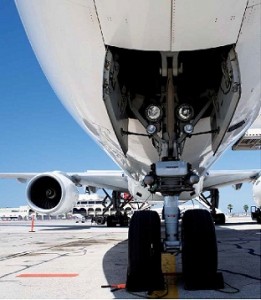Inconel 718 for aerospace engine applications
Latest aircraft engines and structures are featured by greater fuel efficiency and reliability rather than their traditional counterparts. Engines can perform longer and fly over oceans for several years. In addition of their commercial uses, military sector is also largely based on the utmost performance of jet engines.
To receive the best value of the cost and performance, the aero engines are made from the high performance materials such as Inconel alloy 718.
Inconel 718- A super alloy for complicated applications
The aerospace engineers use the super alloys that perform reliably in the hot sections of the turboreactors. They can withstand tremendous mechanical stresses and strains in challenging conditions while providing protection from corrosion and creep.
Alloy 718 is ideal for applications in the high temperature media where creep, corrosion and heat resistances are needed. It is a key solution of hot structural applications therefore it is widely used in the various industrial sectors.
Alloy 718 can be used over 600oC everlastingly. It offers good creeping resistance and high rupturing strength in addition of possessing good strength, toughness and corrosion resistance at the elevated temperatures.
Around 50% of produced Inconel 718 is only used in manufacturing aircraft engines in their essential parts including blades, sheets and discs. It is also widely used in rocket engines and cryogenic applications for providing good toughness at low temperatures.
Contribution of Nickel, Iron and other elements
Inconel 718 contains adequate content of nickel, chromium, iron and other elements that offer strong corrosion resistance at temperature limits above 950oC. Nickel prevents chloride induced stress corrosion cracking, attack of organic and inorganic compounds and more. Chromium offers an ability to prevent corrosion in oxidizing media and sulphur compounds. Molybdenum offers resistance to pitting attack.
Improvable properties
Inconel 718 is hardenable and a common metal for jet engine structural parts that are used at the high temperatures.
Solid solution hardening and precipitation hardening methods are commonly used to enhance the strength of alloy 718. The alloy is initially annealed to confirm the dissolution of its aging elements such as aluminium, titanium and niobium. To maintain good resistance to stress and creeping, alloy’s application temperatures are kept below 650oC. The metal can be easily machined above 540oC. However its good strength, toughness and work hardening may cause troubles at room temperature fabrication.
During machining, elevated temperature is attained on the cutting edge of the insert because of poor heat conductance of alloy and presence of abrasive elements in the alloy’s chemistry. It increases degree of wear, chipping and breakage. Generally machining is done in solution annealed form of alloy and then age hardening is performed subsequently.
The good mechanical strength and hardness of Inconel 718 wire limit its forming capability even though at the high temperatures. As a result, many alloy 718 components are developed by investment casting that offers enhanced material utility with a potential to develop complex shapes even at the controlled price.
Old manufacturing techniques are challenging for use on Inconel 718 that affect its supreme characteristics to be formed in the various shapes. Heanjia Super-Metals implements the latest manufacturing techniques that ensure its easy processing while maintaining the properties of metal.
We understand the significance of Inconel 718 in the high end aerospace applications therefore we aim at delivering the high performance and reliable metal at the lower price.


